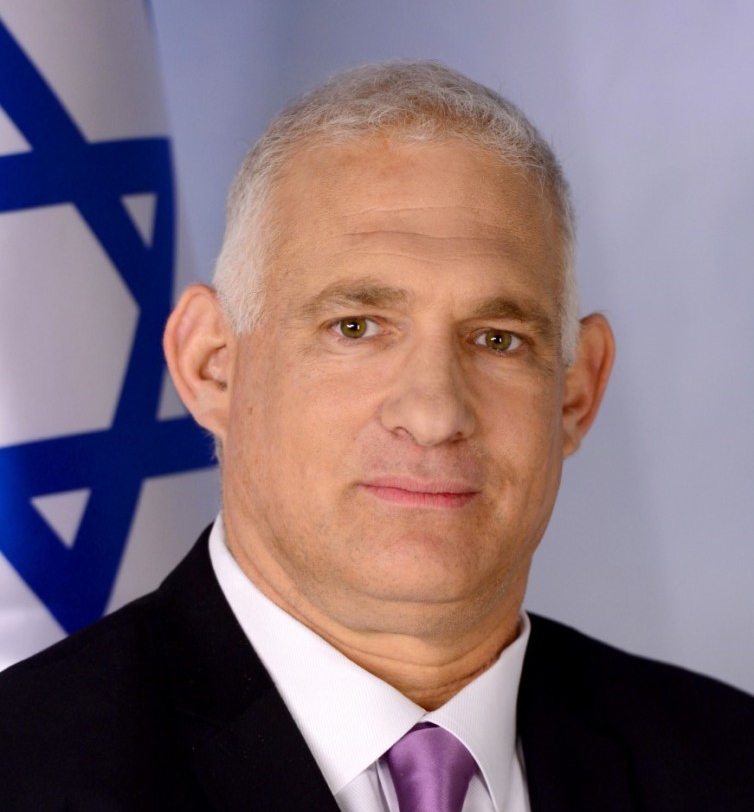Proposal for a tourism vision
Israel will be a local and international tourism destination, representing pride in ourselves and the local quality of life, while creating a unique proposition for international value, acting as one of the significant engines of growth and employment in the State of Israel.
Principle recommendations
- Establishment of a capital risk fund for investment in innovative tourism projects in order to bring the spirit of innovation and creativity into the branch.
- Use of digitalization in order to improve existing tourist products and their marketing, by empowering those who work in the field and improving capabilities in the digital field.
- Increasing the demand curve through development and investment in conferences, leveraging health tourism and increasing Eco-Tourism.
- Developing infrastructures needed for local and international tourism, upgrading the location and accessibility of sites in Israel.
Goal
The development of a toolbox to deal with one of the largest crisis ever seen by Israel’s tourism industry which has exposed the lack of occupational resilience of over 450,000 people in the branch, including tour operators, guides, flight attendants, restaurateurs, hoteliers, taxi drivers, tourist agents, catering companies, florists and more.
Guiding principles
- Cooperation between the government and local authorities and the business and non-profit sectors.
- Focus on human capital as the principle actors in the field and in keeping with this, acknowledgement that the industry’s workers are its main economic anchor (350,000 employees).
- Strengthening activity in the sector will happen through development of growth engines in new horizons to broaden the circle of employees in the field and instigate activity, rather than by compensating for a loss of income in the current period.
Read More
Status report
The tourism industry employs 141,000 workers and makes up 2.6% of the GDP. The Corona crisis hit the tourism industry harder than any other branch of the economy and led to complete paralysis insofar as actual activity and to near-bankruptcy for many businesses. The crisis attacked the industry during a period of previously unmatched, record-breaking success, with a consistent increase of 60% in the number of tourists over five years. High demand led to a decline in the quality of services and to unchecked high prices.
Estimations are that a gradual removal of the various limitations on traffic will last over a year. For comparison’s sake, the outbreak of the SARS virus in 2003 ended within four months, its scope was considerable smaller, but recovery to pre-epidemic levels of tourism in areas which were affected lasted 18 months. Based on past experience, estimations are that it may take up to a decade before the industry recovers, due to an inability to recover even when demand picks up. Tourism around the world is suffering from a blow to its income along with damage to its image; the industry is seen as a leading factor in spreading the disease. While in many countries the industry has been bolstered by support, in Israel the budget branch has refused to transfer funds, claiming that there is no tourism today and thus no need to send money their way.
Main weaknesses and challenges
- Mass dismissals and bankruptcy – companies whose collapse will prevent them from recovering even after a return to growth
- The economic recession in the market will lead to a reduction in overall consumption and particularly to damage in consumption of services from those branches considered luxury items
- Limits on international traffic will make recovery difficult even once the rest of the economy has returned to nearly full activity and growth
- The State of Israel is highly dependent upon air transportation as a result of its political relations with neighboring countries
Main strengths and opportunities
- Health-wise, Israel is perceived as a safe country in comparison with other countries. This means that there is a relative advantage versus other tourism destinations around the world. Experience teaches us that when there is a slowdown or reduction in demands for specific tourism destinations, new destinations take their place in the sun. Israel can now locate itself as a preferred tourist destination.
- Israel is one of the most experienced countries in managing tourism during times of crisis, due to its security-based experience with crisis and recovery.
- Social distancing limits, with their emphasis on multiple people in closed, busy spaces, will, it seems, be with us for the long term. This situation has created a unique opportunity for the hospitality industry and for services in the countryside.
- Israel has strong technological capabilities which will serve as a relative advantage in finding innovative solutions for changing demands.
- An opportunity to upgrade organizational, physical and technological infrastructures for tourism elements.
- Development of international medical tourism, due to the collapse of health systems in other countries.
Leveraging international medical-commercial tourism in areas of technological developments in the field as well as religious tourism connected to the faith-based Travelers.
Steps for implementation
- Establishing a capital risk fund for investment in innovative tourism projects to develop a spirit of innovation. Positioning digital tourism in Israel as the most advanced in the world, based on the State’s role as a technological innovation power.
– Development of an “accelerator hothouse” in Jerusalem, in order to turn the city into a leading, new tourist space at the national and international levels.
– Big Data
– At the same time, Israeli big-data companies will work to concentrate all of the existing technologies from around the world which may be relevant to the field of tourism. - Advanced digitization of the tourism industry
– Development of a program which will include establishing a standard for the digital tourist experience and its implementation in a continuous and consistent fashion. Leading the world in digital tourism. - Increasing the demand curve
– Regional hospitality clusters. Employing a smart digital system which will facilitate access to the supply of cabins in the Galilee, in the Golan and in the south – “Lego hotels”. For example, a request from a tourist group for twenty rooms in a hotel in an area where there are no hotels, will be answered immediately within the system, vis-à-vis a group of cabins within the required radius in order to provide a solution for their needs.
– Virtual tourism. In other words, a combination of physical tours with virtual ones by strengthening the experience and the interest in it. This combination may draw visitors who began the virtual tour abroad and wish to complete in in real life.
– Medical tourism. The collapse of health systems around the world, while the Israeli system has demonstrated its resilience, will create an opening for extensive medical tourism for those who cannot receive appropriate treatment overseas. An aggressive marketing mechanism will make it possible to create medical tourism traffic in significant numbers.
– Business tourism. Holding international conferences and establishing a unique conference center in the Negev and the Galilee in a manner which will allow attendees to maintain the required distance limitations. For example: it is possible to hold conferences outside. Also, development of a technological package which will be offered to the organizers in order to use the technology to manage the conference while maintaining health regulations.
– Overland tourism: With the reduction in tourism arriving by air, the opportunity has presented itself to strengthen an existing trend by fortifying overland tourism from Jordan and Egypt. Regional forums need to be developed including representatives of Israeli industry and its partners in neighboring countries, to offer targeted packages for tourists, to lower the border fees and to increase the efficiency at border crossings insofar as security checks and so forth, in order to improve the tourist experience.
Other projects in the development stage
- Shared resources: The massive drop in demand creates an existential threat due to the high regular costs. A full mapping and ability to share and unite resources will permit a significant reduction in regular costs for businesses. Shared resources will include, among other things, transportation and logistics, acquisition, human resources, sales and marketing platforms.
- Dismantling accommodation packages: Creative use of capabilities and resources – “dismantling packages”. At the moment, hotels offer comprehensive packages including accommodation, dining, spa, pool and so on. A change in the service model and consequently the business model will make it possible to adapt the product and attract new groups, leading to a growth in demand for services as well as varying revenue sources for hoteliers.
- Health standards association stamp: Israel is a world leader insofar as health standards – establishing a voluntary, international health tourism standard. Israel possesses security fortitude and powers from the general security services, leads the world in protecting airports and aircraft. This is power and knowledge which can be leveraged to develop a health tourism standard and to market it to the world. The health tourism standard will provide a strategic solution to the world to manage the health-based operations of millions of people who fly every day, in three stages:
- Upon boarding the plane – checking temperatures, a quick Corona test, health declaration.
- Tracking the course of their stay in Israel in order to develop warning capabilities for potential contagious people
- If needed, evacuation of sick tourist to quarantine hotels or hospitals, at the State’s expense.
This sort of comprehensive solution will give both tourists and Israelis peace of mind and security. The Israelis will be less exposed to Corona carriers and if they have come into contact with one, the system will locate it relatively quickly and the contagion will not spread. At the same time, tourists will be informed that the vacation package they purchased includes all the necessary means to protect them and care for them if needed.
- Quality index – Establishing a quality index for tourist services in Israel (including hotels and hospitality, restaurants and transportation services)
- Mass recruiting – Harnessing social solidarity to develop tourism through mass recruiting.
- Flexible nationalization – One way or another, we can expect many hotels to go bankrupt. In order to prepare for this, it is important to prepare a national plan for the nationalization of hotels in a flexible manner and for their alternative use within a defined period of time.
- Location and leveraging of new audiences – The elderly – An examination of demand by the elderly for vacation packages which include medical care required for them to be able to “get some air” after the long quarantine period and even, perhaps, during it, given the proper conditions at the accommodations.
Development of integrative infrastructures and spaces
- Strengthening existing infrastructures – Maintenance and new developments in tourist tracks, explanatory systems and so forth, in expectation of the return of tourism to normal. Investment in infrastructures now will make it possible to place the unemployed in new jobs within the economy while strengthening tourism’s capabilities and attraction once things return to normal.
- Development of the rural tourist space – Overcrowding is an unavoidable part of the tourist experience in Israel (and indeed all over). Given the estimate that the virus will be with us for a long while still, the expectation is that tourist products will require experiences in open spaces. Developing tourism in a new climate from that we were used to and which combines the component of open spaces is a wonderful opportunity to develop the Negev and the Galilee. Implementation of practical and conceptual processes of expansion of the appropriate activities to open areas as well as encouragement of these activities, is a critical national project which will aid in the promotion and strengthening of the Negev and the Galilee, for rural tourist spaces.
Infrastructure development: The emptying of hotels and tourist sites are undoubtedly a harsh blow. However, as in every crisis, opportunities for investment arise which willbear fruit in the long run, on the condition that significant investment is made in the infrastructure. Those authorities responsible for this (governmental, local, business organizations) must compete for an expedited call for proposals to receive grants to carry out these developments.




